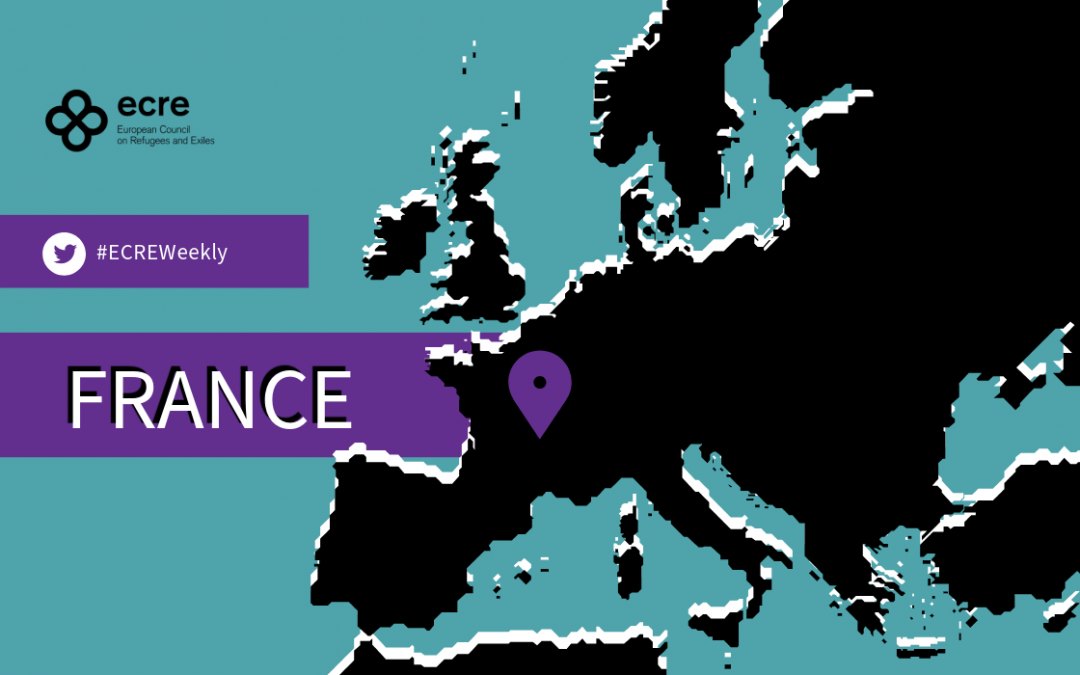- The new government has vowed to take a tougher approach to migration, with a focus on overhauling the EU Pact on Migration and Asylum and the Schengen Agreement.
- Plans to abolish the state medical aid (AME) for undocumented people have provoked strong reactions from former health ministers and NGOs.
- A new report by Amnesty International has highlighted the discrimination that migrant women in France face at the hands of the police when they try to report abuse.
The new government has vowed to take a tougher approach to migration, with a focus on overhauling the EU Pact on Migration and Asylum, and the Schengen Agreement. In a speech to parliament in which he set out his government’s priorities on 1 October, Prime Minister Michel Barnier called for the Pact to be “implemented without delays” and for it to be “completed by giving Frontex its prime role as the EU’s border guards back”. Barnier also confirmed that border checks would remain in place “for as long as necessary, as allowed under EU rules, just like Germany”. He has previously described France’s borders as “sieves”, stated that migration was “not under control” and promised to “limit immigration”. Although he did not propose any more repressive measures, Barnier did not condemn the radical tone that Minister of the Interior Bruno Retailleau took when the latter stated that the rule of law was “neither intangible nor sacred” when he called for a major revamp of the Pact, including the Regulation on Asylum and Migration Management, and reform of the Schengen Agreement. In an apparent nod to the Netherlands and Hungary, Retailleau also called for a “sort of alliance with [EU] countries who want a tougher response on immigration to review European legislation that is no longer relevant”. Commenting on the Prime Minister’s speech, Renaissance party member of the European Parliament, Fabienne Keller said: “It is troubling to see that the words he is using are those of the far right”. In a press release issued before Barnier’s speech, ECRE member organisation Forum réfugiés said that “the announcement of a tenth Asylum and Migration law would be a disastrous signal to public opinion”. The organisation added that it expected the prime minister to “reaffirm France’s respect for its international commitments in terms of fundamental rights, which constitute the basis for all reflection and action in the field of asylum and migration” but that “the gap between the proclamation of these rights and their effectiveness is already growing, as evidenced by the European Asylum-Migration Pact”. The concerns expressed by Forum réfugiés were echoed by ECRE member organisation France terre d’asile. “We call on the new government to move past posturing in order to address real issues such as reception and integration,” it X posted.
On 24 September, it was reported that ministers were considering the removal of the state medical aid (AME) for undocumented people. Minister of the Interior Bruno Retailleau had previously expressed his support for replacing the AME, which provides free healthcare to undocumented people settled in France, with a smaller fund to cover emergency situations only. On 26 September, eight former health ministers co-authored an opinion piece in the Monde newspaper in which they warned against the proposed changes to the AME. “Calling the AME into question would be completely stupid not only for public health, but also for health insurance finances,” said former health minister, François Braun. Another former health minister, Aurélien Rousseau, also criticised the plan. “Let’s be clinical: the AME is not a factor in immigration. This is well-documented. However, the government prefers to talk about its abolition to satisfy the extreme right. A pledge, a scalp, a totem, without having the strength or the courage to tell the truth,” he X posted. On 30 September, Forum réfugiés issued a press release in which it said: “We share the concern of other health and social action bodies about the plan to change state medical aid into emergency medical aid, when everything demonstrates its ineffectiveness and dangers in the health, economic and legal fields, and care constitutes a collective protection”.
A new report by Amnesty International has highlighted the discrimination that migrant women in France face at the hands of the police when they try to report abuse. The report, which was published on 5 September, describes how the “double violence” that the women experience makes them reluctant to file complaints of rape or other sexual violence, and how they struggle to access to justice because they are often at risk of arrest or deportation. It also reveals that “numerous female migrants who were victims of violence went to a police station to be protected (…) and were issued an OQTF (obligation to leave French territory) and placed in detention”. “It’s absolutely illegal,” said Lola Schulmann, one of the report’s authors, adding: “Everyone has the right to press charges whether they are documented or not”. “It is time to put an end to these stigmatising and cruel practices. It is urgent that these women are fully listened to, respected, and protected by the police,” she concluded.
Related articles
- FRANCE: Recent Decision By National Court of Asylum Decision Could Have Significant Impact for Palestinians from the Gaza Strip ― Tension in Mayotte Amid Possible Change to Citizenship Rights for Islanders ― Former Frontex Chief to Run in European Parliament Elections for Far-right Party (February 2024)
- FRANCE: New Immigration Law Adopted Despite Constitutional Council Rejecting Almost Half of Its Articles ― Authorities in Marseille Accused of Ignoring Obligations Towards Unaccompanied Migrant Children ― Paris Police Evict Migrant Teenagers From Temporary Housing Despite Freezing Conditions ― Franco-British Migration Pact Blamed For Doubling Of Channel Deaths (February 2024)

